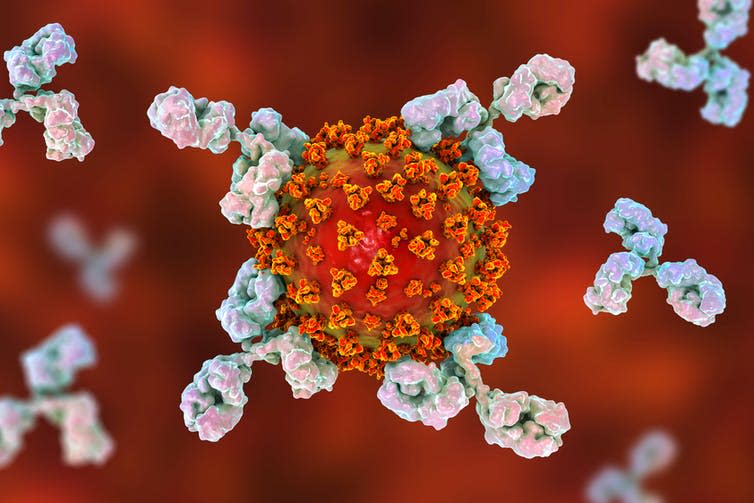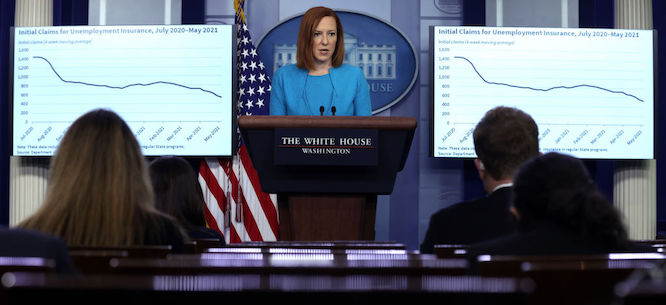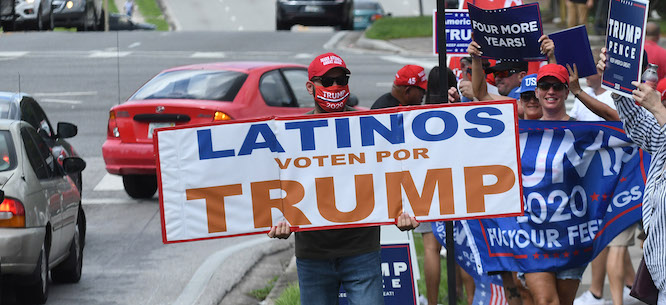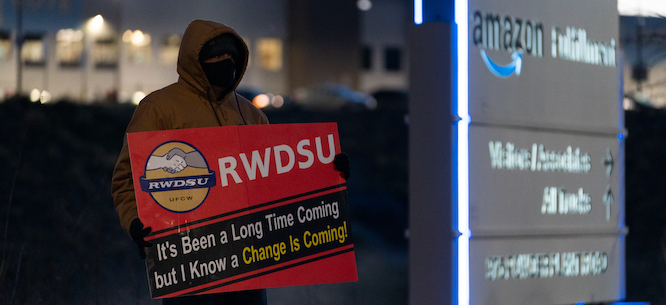“There you have it — At-will, AKA at the beckon call, beckon abuse, beckon exploitation, beckon denigration, beckon injurious behavior and workplace environment. These employers are thugs, and from the top down, with their lawyers and MBAs and institutional misleadership yahoos at the executive level, the worker is doomed by this sick system. Forced vaccinations for schools, colleges, workplaces. The systems need to burn!”

Of course, I am asked not to identify the person who wrote this to me. We all are being surveilled by these Stasi folk, whether we work for a governmental agency, school systems, private college, for-profit business, mom and pop lowbrow joint, nonprofit, you name it.
They (bosses, agencies, pre-employment interviewers) sign up for Google search notifications — any time their company is named in the media or on digital platforms, they get notifications. They track what’s said about their business, corporation, nonprofit, agency, school. That is also for anyone they want to put into the Google-Palantir search engine, for a price, monthly rate, be it a person’s name. Like mine, hmm.
This is what these Stasi Americans want in their lives — complete control. Damage control against the truth-sayers speaking truth to power. Damage the messenger, or kill him or her with constant threats of litigation, fines, subpoenas, more. Imagine one writer, me, getting hooked into the Google Gulag, but then, what about anyone with my name? Hmm, children, siblings, spouses? This is how they play their mole game.

Below, an example of the blithe and dangerous bullshit fake journalism of the mainstream imbeciles. That the State of Oregon can force vaccinations onto people really is the issue: the state just pushes that onto the overlords running businesses or nonprofits. That’s it, no argument, hands down the policy of the land, man.
The news (sic) story below will not contain push back, and it will be vacant of civil rights thinkers/libertarians cited, will allude to no one pushing back on these Draconian measures. In fact, the story will not frame these measures as Draconian. The journalist from the Oregon paper of record (Oregonian) is already colonized and co-opted. Then you get some “law” professor (sic) from a for-profit private university pulled into the article, to come on board to yammer on. This is the new normal that’s been pretty old normal — mainstream media faking it, looking like it’s in the hunt for balance, when it’s all false balance, false and manufactured consent. The goal is to question the prevailing party-bureaucratic-company line, and question all governments’ actions. Read here:
“I think ultimately most employers would be able to require it,” said Henry Drummonds, a Lewis & Clark Law School professor specializing in labor and employment law. “But I think most employers probably wouldn’t want to require it. I think employers could first encourage and educate employees about the safety of the vaccine and the desirability of it in terms of protecting yourself and your coworkers.”
Drummonds said that at-will employment standards allow private businesses to dictate and change the terms of employment at any time and fire employees for any reason, as long as they don’t discriminate on the basis of race, gender, age or any other protected category.
In practice, this means that employers probably could require employees to receive the vaccine to remain employed or return to the office. Both the U.S. Equal Employment Opportunity Commission and the Oregon Bureau of Labor & Industries have released guidance stating that employers can mandate that employees get vaccinated.
/arc-anglerfish-arc2-prod-dmn.s3.amazonaws.com/public/WBFQ5BYILBCYJP5OPAKFJHXZKM.JPG)
Already, idiocy prevails: just recently, I witnessed a manager of a nonprofit ask her employee in front of another employee in a public place within lots of people’s earshot: “Well, Rick, got his vaccination. So did I. Most everyone in the company has. But John hasn’t.”

I knew this was a nonprofit this manager was a member of because I was within earshot. I offered an unsolicited response, trying to equate calling someone out in public for not having this experimental and not FDA-approved chemical shot. “How’s your BMI? You looking overweight? How’s your hypertension? You looking pink in the face? How’s your probable lung cancer? You just finished off a cigarette. Come on, shaming people for not agreeing to an untested chemical compound with that jab in the arm is unethical, and in public so I can hear your conversation?” She just clammed up and scooted her two employees away.
Imagine, fewer and fewer tough guys and gals can actually make it in USA (elsewhere too) with the power of what they can and cannot decide upon, that is, what they either want to and do not want to be injected into their bodies. Mind you, the jury is far from out on these chemical shots —
On February 27, 2021, the Food and Drug Administration (FDA) announced it had “issued an emergency use authorization (EUA) for the third vaccine for the prevention of coronavirus disease 2019 (COVID-19),” the Janssen (Johnson&Johnson) Covid-19 vaccine.
This announcement is virtually identical to the EUAs previously issued for Covid-19 vaccines produced by Pfizer-Biontech and Moderna.
In each of the EUAs, the FDA has been careful to avoid any claim that the vaccines provide protection against infection or transmission of the virus. Similarly, the Centers for Disease Control (CDC), the World Health Organization (WHO), and the National Institutes of Health (NIH) have each publicly stated that the vaccines have NOT been shown to prevent infection or transmission.
All of their regulatory documents and commentary addressing the issue state clearly that there is no evidence that the vaccines affect either infection with or transmission of the virus, nor do they prevent symptoms of Covid-19 from appearing.
— Source: “Covid Vaccine Nonsense” [US-based human rights lawyer breaks down the contradictory claims of “effectiveness”, the incomplete studies and legal minefield of forced use of experimental vaccines] JP Jerome

Let’s shift to some compare and contrast between vaccine makers and cigarette makers. I just read a short but cogent article on the menthol marketing, how 45,000 black Americans die each year from tobacco related illnesses (mostly throat, tongue, and lung cancer). Talk about cool — mentholated cigarettes’ make the poisons go down easier. Everything goes down smoother with a little bit of throat deadening. And this is legal stuff. No massive “take all the cigarettes’ and Juul’s and pipes and cigars and chew cans away.” “Menthol Marketing Exposes Institutional Racism” by Michael Schwalbe, Counterpunch.
But forced vaccinations, and then this pact with the devil — at-will, zero protection: screw up and you get the pink slip bullshit about American capitalism. Sort of buyer beware, user beware, consumer beware, worker beware.
In the long run, the solution to the ongoing global pandemic of tobacco-related disease is to abolish tobacco companies. Short of that, we now have an opportunity to significantly curtail the industry’s ability to profit from the destruction of Black lives. If Black lives matter, we must not let the opportunity pass.
— Michael Schwalbe, professor of sociology at North Carolina State University Source.

Low income, lots of working class people, workers in the developing world. Slick multimillion dollar a year ad campaigns: Slick, and Scientific (sic). Data driven. Imagine, tobacco kills more than 8 million people each year. Of these deaths, 1.2 million are caused by secondhand smoke exposure. Talk about an epidemic, pandemic. You know that every rotting Southern pol and every single tobacco lobbyist and every grower and CEO, they pooh-pooh these stats. “Prove it. If it’s that deadly, then why’s it legal?”

The internet seems great at scrubbing information, but the reality is that when Ray-Gun left his criminal enterprise throne, he did some hucksterism stuff for the tobacco industry. He and Edwin Meese did a talking tour overseas to push cancer sticks.
Talk about killing people from his cold-ass grave, Reagan and the long arm of his contra mentality, still with us:
But the industry did not launch its campaign for new overseas markets alone. The Reagan and Bush administrations used their economic and political clout to pry open markets in Japan, South Korea, Taiwan, Thailand and China for American cigarettes. At a time when one arm of the government was warning Americans about the dangers of smoking, another was helping the industry recruit a new generation of smokers abroad.
Asia is where tobacco’s search for new horizons began and where the industry came to rely most on Washington’s help. U.S. officials in effect became the industry’s lawyers, agents and collaborators. Prominent politicians such as Robert J. Dole, Jesse Helms, Dan Quayle and Al Gore played a role. “No matter how this process spins itself out,” George Griffin, commercial counselor at the U.S. Embassy in Seoul, told Matthew N. Winokur, public affairs manager of Philip Morris Asia, in a “Dear Matt” letter in January 1986, “I want to emphasize that the embassy and the various U.S. government agencies in Washington will keep the interests of Philip Morris and the other American cigarette manufacturers in the forefront of our daily concerns.” Source.
Why the harangue by yours truly against tobacco in a piece about how rotting the at-will mentality of big, small and loser companies run by bigger losers than anyone following the Peter Principle 2.0 [well, Peter Principle update: the worse you are as a human, with no ethics, no character, well, you go up the ladder, food chain, corporate manure pile!] can imagine forcing vaccines onto workers?
Think hard about an experimental mRNA chemical put into a syringe and then forcefully delivered to the global population. Hmm, would this have been acceptable in 2019? 2001? 1990? The year I was born, 1957?
Of course not, and yet, this is it, with people being shamed or called out for reluctance on an experimental, emergency authorized, untested chemical and DNA morphing drug being forcefully put into one’s body. Not once, but with a booster, and then, now, as the world burns, yearly or bi-yearly boosters for the “new” variants of a corona cold virus.
Here, this is science and capitalism, science/capitalism/politics, like leprosery and it’s host —
One way the tobacco industry has manipulated cigarettes to increase addictiveness is by loading cigarettes with chemical compounds. Bronchodilators were added so that tobacco smoke can more easily enter the lungs. Sugars, flavors and menthol were increased to dull the harshness of smoke and make it easier to inhale. Ammonia was added so that nicotine travels to the brain faster.
Specifically, increasing the amount of nicotine was of paramount importance to tobacco company executives. Experts found that Big Tobacco companies genetically engineered their tobacco crops to contain two times the amount of nicotine and adjusted their cigarette design so that the nicotine delivered to smokers increased by 14.5 percent. As Phillip Morris Principal Scientist W.L. Dunn said in 1972, “No one has ever become a cigarette smoker by smoking cigarettes without nicotine.” — Source
Bronchodilators and ammonia added? Come on, my students at UTEP were finding more dirt on big tobacco and the collusion with the FDA, keeping secret under governmental lock and key all the ingredients they sprayed on tobacco before becoming the stuff of rolled cigs, cigars, pipe filler and chew. Think of secret doses of anti-convulsant drugs, since the higher nicotine content and the other burning chemicals cause many people to get ticks, minor tremors; i.e., seizures. Best keep the seizures down and the sales up.
Shoot, this is just the minor list of smoke by-products — Nicotine (the addictive drug that produces the effects in the brain that people are looking for), Hydrogen cyanide, Formaldehyde, Lead, Arsenic, Ammonia, Radioactive elements, such as polonium-210, Benzene, Carbon monoxide, Tobacco-specific nitrosamines (TSNAs), Polycyclic aromatic hydrocarbons (PAHs).
These Satan’s, these big and little Eichmann types, these Mad Men, these PR spinners, these profiteers and cancer mercenaries, come on, the story is bigger — 600 ingredients can be used in cigarettes, but the actual combustion of the cig produces over 4,000 chemical compounds. And, when burned, these cigarette ingredients mix together and create deadly substances, 69 of which are carcinogenic.
Yeah, how’s that pandemic and pandemic and pandemic on the horizon. SARS-CoV2, 3, 5? Remember, there is no outright statement that declares cigarette smoking causes cancers or any number of other co-occurring diseases or terminal cancers.
So, if Big Tobacco and Gore and Reagan and Clinton and Trump, et al can stump just for this singular felonious Mafia outfit, what do you think might be happening behind closed doors and inside labs and at the top of the heap tied to exactly what this experimental vaccine’s (sic) side effects might do today, next month, a year from now, etc.?
For the good of the world? The economies? For life saving ethos? You got the memo yet? You want life saving? Shit, one product, tobacco, done with, hmm, what’s that life saving factor? Banned from planet earth, more or less. And how much for all the lost labor of huffing and puffing cig smokers . . . all the flagging physiologies, all the damage, slow and fast, caused by cigs, et al? Ya think there will be a ban tomorrow?
Hmm, NEVER. Now, multiply that a million fold with all the deadly chemicals and toxins and fumigants and fungicides and off-gassing crap in all manner of clothes, combustible materials, food, drinks, drugs. Then multiple one times two, and then factor up. How do these work, hmm, twelve together, the impossibility of really studying the synergistic effects of one chemical interacting with another, or a dozen or 4,000? Hmm, those 4,000 chemicals in one good Marlboro man drag, what’s the toll?
You think there are governmental and private financed studies on that? Think.
According to comments from vaccine scientists in September 2020 (prior to the Covid-19 EUA issuances), no vaccine had ever before been distributed on an EUA basis.
“We don’t do EUAs for vaccines,” [Dr. Peter] Hotez said, “It’s a lesser review, it’s a lower-quality review, and when you’re talking about vaccinating a large chunk of the American population, that’s not acceptable.”
Three months later, the FDA issued EUAs for the Pfizer and Moderna vaccines, but with explicit guidance that the vaccine “has not undergone the same type of review as an FDA- approved or cleared product.”
The idea is that if there are injuries and deaths because of the experimental and untested drugs-chemicals in these shots, well, who foots the bill? Who is responsible? Hmm, in the USA, it’s the US taxpayer.
I have a friend whose niece would not take “death by any other means” as the last answer. She is pushing for an investigation into her father’s death after the vaccine was given to him. He was 74, healthy, but he did have aging issues, like we all do. Blood clots occurred rapidly, hmm, and, then he checked out in a stroke like manner. This is after, right after, vaccination. The county coroner will not do an autopsy, and alas, there are no watchdog agencies in our corner. A simple autopsy would be $6,000. This is a suspicious vaccine-related death, and she has now gone on-line and gotten more people to email her about similar deaths after vaccination. She can’t put it on Facebook, too long or too detailed like, so she is getting contacted through GoFundMe. She’s doing this surreptitiously. There will be no Ralph Nader’s or RFK, Jr.’s coming to her family’s aid.
Just like you can’t sue successfully the big tobacco and their technicians and chemists and MD’s and lawyers and CEO’s and the politicians and marketers for selling a dangerous product to a billion people, let alone the second and third hand smoke of these cancer sticks.
The post
Methanol for the CoV2 Hypodermic Chemical Experiment first appeared on
Dissident Voice.
This post was originally published on Dissident Voice.





/arc-anglerfish-arc2-prod-dmn.s3.amazonaws.com/public/WBFQ5BYILBCYJP5OPAKFJHXZKM.JPG)











